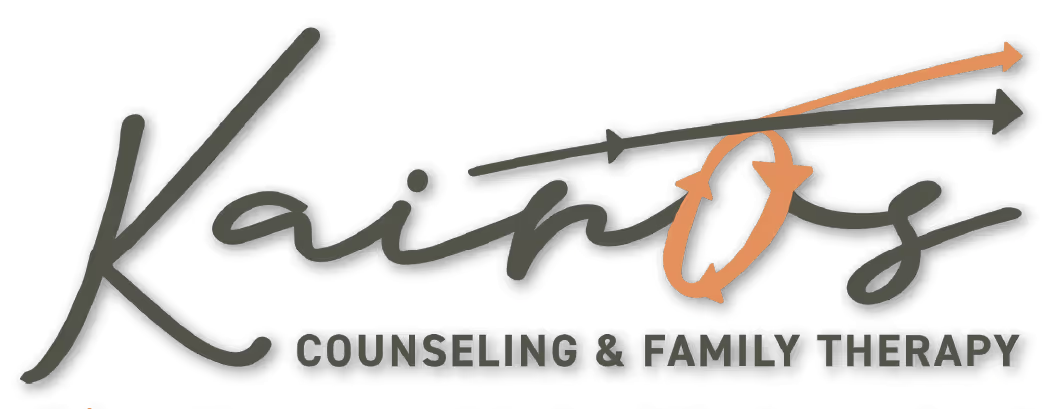Addiction Therapy & Recovery In Person in the Dallas Ft Worth Metroplex, Virtually Throughout Texas & New Mexico
Regulate Your Nervous System. Break the Cycle. Reclaim Connection.
Book an appointment

Who is this service for?
This service is for individuals who feel trapped in a cycle of using substances or behaviors to cope with internal pain, shame, or numbness. It is for those who have tried to stop on their own but find themselves pulled back by triggers, cravings, or unresolved trauma. We support adults and adolescents ready to move beyond willpower alone and heal the underlying wounds that fuel their addiction, seeking a path toward genuine connection and peace.
Session Length:
Investment:
Availability:
Addiction is more than a behavior; it's a coping mechanism developed to soothe profound internal pain, trauma, or emotional fragmentation. While it offers temporary relief, it ultimately deepens disconnection from yourself and others. At Kairos Counseling, we understand the cycle of shame, secrecy, and compulsion. Our approach isn't just about stopping a behavior—it's about healing the pain that fuels it, helping you build a life of connection and purpose.
Understanding Addiction
Addiction is a complex disorder that manifests as a compulsive need to engage in a behavior or use a substance, despite harmful consequences. It is often a misguided attempt to regulate overwhelming emotions or numb psychological pain. Our therapy addresses:
- Substance Use Disorders: Addiction to alcohol, opioids, stimulants, and other drugs.
- Behavioral Addictions: Compulsive behaviors related to pornography, gambling, or gaming.
- Process Addictions: Patterns of addiction in areas like work, relationships, or codependency.
- Dual Diagnosis: The presence of both addiction and a co-occurring mental health condition like depression, anxiety, or PTSD.
Common symptoms include:
- Intense cravings or a sense of loss of control
- Using substances or behaviors to numb emotional pain
- Engaging in secrecy or shame surrounding use
- Experiencing significant mood swings or withdrawal symptoms
- Feeling internally fragmented or battling self-loathing
Our Evidence-Based Approach to Addiction Treatment
Effective addiction recovery requires a long-term, trauma-informed commitment that addresses the root causes of compulsive behavior, not just the symptoms. The initial phase focuses on safety, stabilization, and reducing cravings, which may take several months to establish a solid foundation for deeper work. Treatment duration depends on multiple factors, including trauma history, current support systems, and the complexity of the addiction.
Throughout your journey, we maintain rigorous safety protocols and a pace that respects your window of tolerance. Our clinicians are specially trained to recognize signs of overwhelm and use a integrated approach to ensure your stability while gently processing the underlying trauma.
We integrate several advanced, research-backed modalities to create a personalized treatment plan:
- EMDR Therapy (DeTUR Protocol): Developed by A.J. Popky, this protocol specifically targets and reduces triggers and urges by desensitizing the emotional charge behind compulsive behavior. Research shows it helps reduce urges in early recovery and lowers relapse rates by healing trauma roots (Hase, 2008).
- Ego State Therapy: Works to reconcile internal fragmentation, restoring a sense of internal coherence and reducing the internal conflict that fuels addiction (Phillips & Frederick, 1995).
- Polyvagal Theory & IPNB: These frameworks help explain addiction as a survival adaptation of the nervous system (Porges, 2011) and then build new capacities for internal regulation and resilience.
- Expressive Therapies (Sandtray/Art): Explore the symbolic and often pre-verbal roots of addiction in a safe, non-threatening way.
- Somatic Modalities: ETS and SSP help target mood instability, impulsive urges, and foster a calmer state of social engagement and relational support.
- IASIS Microcurrent Neurofeedback (MCN): This cutting-edge tool improves cognitive clarity, reduces reactivity, and can significantly diminish cravings, supporting the overall healing process.
Essential Considerations for Addiction Recovery
Recovery is a courageous journey of rebuilding connection—to yourself and to others. It requires compassion, patience, and a expert guide. We provide a non-judgmental space where your entire story is honored. Our role is to offer the proven tools and unwavering support you need to navigate this path, heal the underlying wounds, and discover a future defined not by addiction, but by choice and connection.
Ready to Begin Your Path to Recovery?
Take the First Step Toward a Connected and Free Future Today! Find a new path to emotional freedom! We offer a Free 15-Minute Consultation. This is available via Telehealth or in-person. It's a great way to see if our specialized approach for addiction therapy is the right fit for you.
Frequently asked questions
Don't let questions stop you from receiving the care you deserve!
The most effective approach is integrated and trauma-informed, treating the root cause, not just the behavior. At Kairos Counseling, we combine therapies like the EMDR DeTUR protocol to reduce cravings, Ego State Therapy to heal internal fragmentation, and IASIS Neurofeedback to calm the nervous system. This addresses the underlying trauma, dysregulation, and pain that fuel the addiction cycle for lasting recovery.
Addiction recovery is a process, not a quick fix. Effective therapy typically requires a long-term commitment, with initial stabilization focusing on safety and craving reduction often taking several months. The full duration depends on factors like trauma history, co-occurring disorders, and your support system. We prioritize your safety and sustainable healing over speed, ensuring we don't move faster than your nervous system can integrate.
Absolutely. Our addiction therapy in Dallas and New Mexico effectively treats both substance use disorders and behavioral addictions (porn, gambling, codependency). These behaviors often serve the same function: to regulate nervous system dysregulation and numb emotional pain. We use the same evidence-based modalities, like EMDR and Internal Family Systems (IFS), to target the shame and trauma underlying all compulsive behaviors.
While support groups like AA provide invaluable community and a structured program, addiction therapy offers clinical treatment for the psychological and neurological roots of addiction. Our therapists provide one-on-one, specialized clinical care using modalities like EMDR and neurofeedback to directly heal trauma, rewire neural pathways, and build regulatory capacity. Many clients find the combination of professional therapy and group support to be the most powerful path to recovery.

